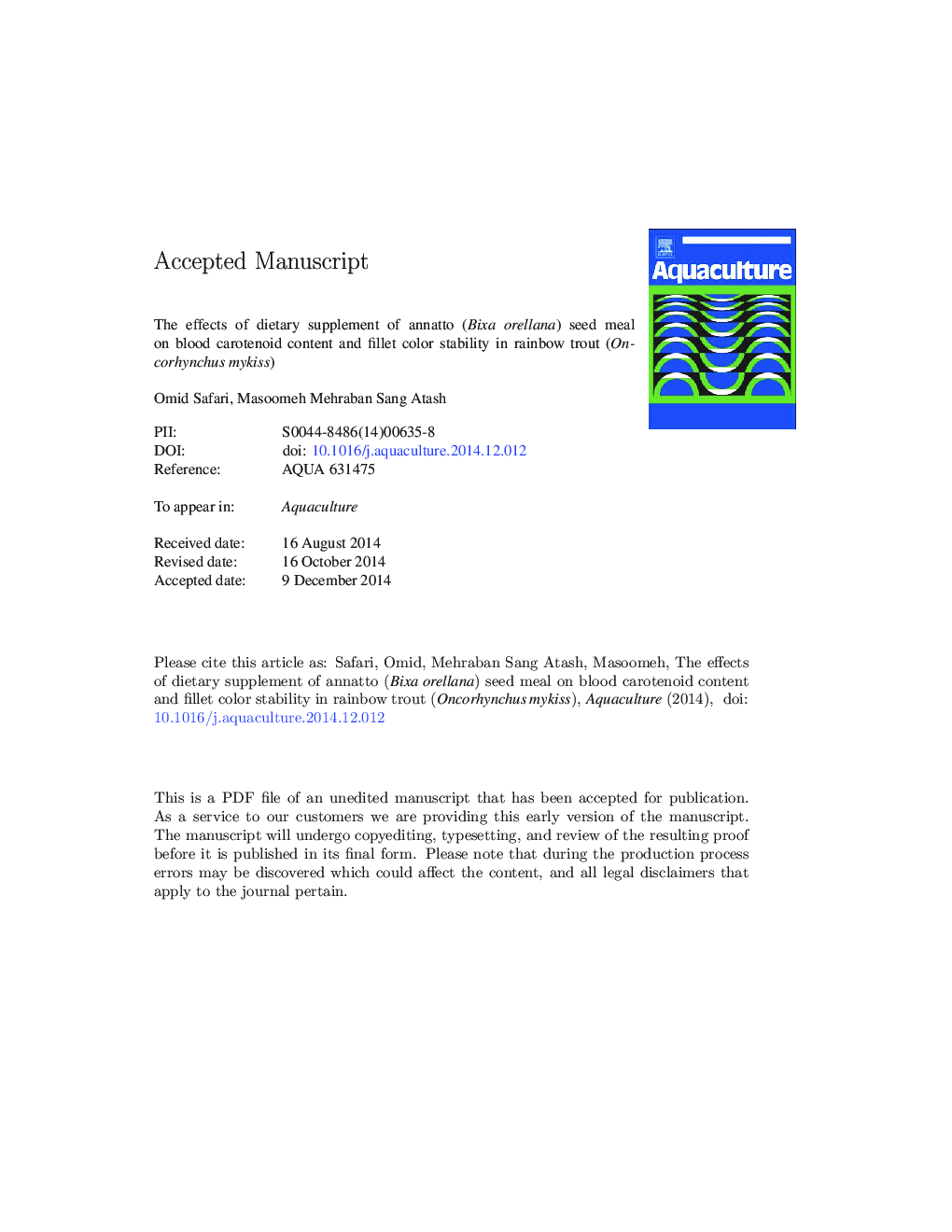| Article ID | Journal | Published Year | Pages | File Type |
|---|---|---|---|---|
| 8494721 | Aquaculture | 2015 | 32 Pages |
Abstract
A 126-day experiment was carried out under controlled conditions to compare the effects of five levels (50, 100, 150, 200 and 250 mg kgâ 1) of annatto seed meal (ANS) on the blood carotenoid content (BCC) and fillet color stability of rainbow trout (87.25 ± 1.42 g). BCC increased significantly (p < 0.05) in fish fed the diets containing 200-250 mg kgâ 1 ANS compared to other diets. There was a significantly (p < 0.05) linear regression (r2 = 0.75) between BCC and fillet carotenoid content. At the end of experiment, there were significantly (p < 0.05) positive relationships between BCC and final weight and specific growth rate (SGR), while a negative relationship was observed between BCC and feed conversion ratio (FCR). Fillet color parameters (Lâ, aâ and bâ) were significantly (p < 0.05) correlated to BCC in the rainbow trout fed dietary ANS. There were no significant differences in the carotenoid content of refrigerated (4 °C) stored fillet after 14 days. The significantly (p < 0.05) least loss of total carotenoid content in the frozen stored fillets after 6 (8.4%) and 12 months (19.2%) was observed for fish fed the diets containing 250 mg kgâ 1 ANS. The frozen stored fillets of fish fed the diets containing from 100 to 200 mg kgâ 1 ANS showed significantly (p < 0.05) lower total carotenoid content loss (27.2-36.0%) than those of fed the astaxanthin-based diet (70.5%) and control (88.78%) after 12 months. The present results showed that dietary ANS exerted positive effects on BCC and color stability of fillets.
Keywords
Related Topics
Life Sciences
Agricultural and Biological Sciences
Aquatic Science
Authors
Omid Safari, Masoomeh Mehraban Sang Atash,
